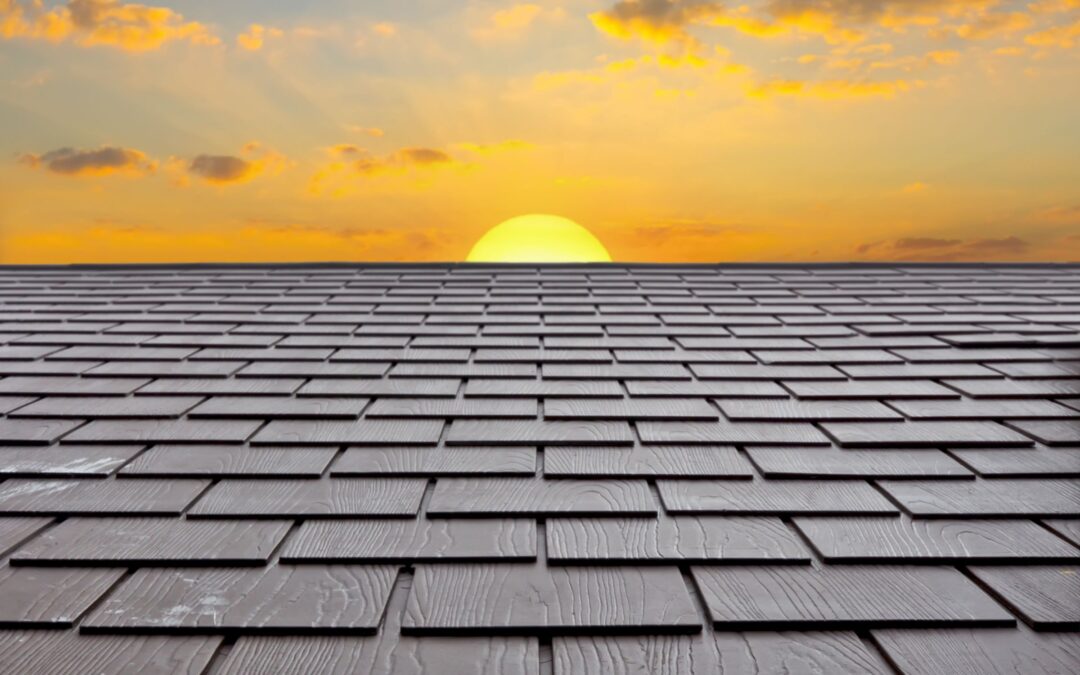When it comes to roofing materials in Middlesex County, NJ, there are several different options available that vary in terms of environmental impact. It is important to consider the environmental factors associated with each type of roof, such as their impact on surface water, weather conditions, and the usage of hazardous substances. By understanding the environmental impact of roofing materials, residents and property owners can make informed decisions that contribute to sustainability and conservation efforts in Central New Jersey.
Metal Roofs
Metal roofs are becoming an increasingly popular choice for homeowners in Middlesex County, NJ. They offer a range of benefits that make them a superior option to traditional roofing materials.
One of the main advantages of metal roofs is their durability. These roofs are designed to withstand the harsh weather conditions of central New Jersey, including heavy rain, strong winds, and even hailstorms. Metal roofs are also resistant to fire, making them a safe choice for homeowners.
In addition to their durability, metal roofs have a longer lifespan compared to materials such as asphalt shingles. While traditional roofs may need to be replaced every 20-30 years, metal roofs can last 50 years or more with proper maintenance.
Metal roofs also offer energy savings for homeowners. They have reflective properties that can reduce heat absorption, keeping homes cooler during hot summer months. This, in turn, can lead to lower energy bills as homeowners rely less on air conditioning. By reducing energy consumption, metal roofs also contribute to the reduction of carbon emissions and help homeowners reduce their carbon footprint.
Asphalt or Composite Shingles
Asphalt or composite shingles are commonly used as roofing materials in Middlesex County, NJ, due to their versatile nature and cost-effectiveness. These shingles are made from a combination of asphalt and fiberglass or other materials, providing a durable and reliable roofing option for homeowners.
One of the main benefits of asphalt or composite shingles is their durability. They have a lifespan of around 20-30 years, which is suitable for the weather conditions in Middlesex County. These shingles are designed to withstand various weather elements, including heavy rain, wind, and snow. They provide excellent protection for homes against leaks and other issues that may arise from severe weather conditions.
Cost-effectiveness is another advantage of asphalt or composite shingles. Compared to other roofing materials, they are relatively affordable and readily available. This makes them a popular choice for homeowners looking for a cost-effective roofing solution without compromising quality. However, there are a few environmental impacts to consider with asphalt or composite shingles.
Asphalt shingles contain petroleum-based products that can release pollutants into the air when the shingles are manufactured and when they are disposed of. Asphalt shingles also contain limestone and other minerals, which can be mined or quarried from the environment. These materials can cause habitat destruction to local ecosystems if not properly managed.
Composite shingles are a type of asphalt shingle that contain recycled materials like rubber, plastic, and wood fibers. These materials are much more eco-friendly than traditional asphalt shingles because they are not petroleum-based and require fewer fossil fuel resources to manufacture. Additionally, composite shingles can be recycled after they are no longer usable, which helps reduce the amount of waste sent to landfills.
Clay and Concrete Tile Roofs
Clay and concrete tile roofs offer numerous benefits and have a positive environmental impact in Middlesex County, NJ. These roofing materials not only enhance the aesthetics of a building but also provide energy-efficient solutions that can help reduce energy bills and extend the life of a roof.
One of the main advantages is the energy efficiency provided by clay and concrete tile roofs. These materials have excellent insulation properties, helping to keep homes cooler in the summer and warmer in the winter. By maintaining a more stable indoor temperature, homeowners can reduce their reliance on heating and cooling systems, resulting in lower energy consumption and cost savings.
Moreover, clay and concrete tiles are often made from recycled materials, further contributing to their environmental appeal. By utilizing recycled materials in the manufacturing process, the demand for virgin resources is reduced, helping to conserve natural resources and minimize waste.
Wood and Cedar Shake Shingles
When it comes to the environmental impact of roofing materials in Middlesex County, NJ, wood and cedar shake shingles present some unique considerations.
Wood and cedar shake shingles have a natural aesthetic appeal and can enhance the curb appeal of a home. However, their use can have significant environmental implications. The extraction and production of wood and cedar shake shingles contribute to deforestation, habitat destruction, and loss of biodiversity. The manufacturing process also requires significant amounts of energy and water, leading to additional environmental strain.
Furthermore, wood and cedar shake shingles are not as durable as other roofing materials, such as clay or concrete tiles. They are more susceptible to weather damage, including warping, cracking, and rotting. This can result in the need for frequent repairs and replacements, leading to increased waste and resource depletion.
In conclusion, the choice of different roofing materials in Middlesex County, NJ, can greatly impact the environment. Opting for sustainable roofing options, such as metal roofs or eco-friendly alternatives like green roofs can help conserve water resources, reduce energy consumption, and promote overall environmental sustainability. By considering these options, homeowners and businesses can play a crucial role in mitigating the impact of roofing materials on the local ecosystem.

